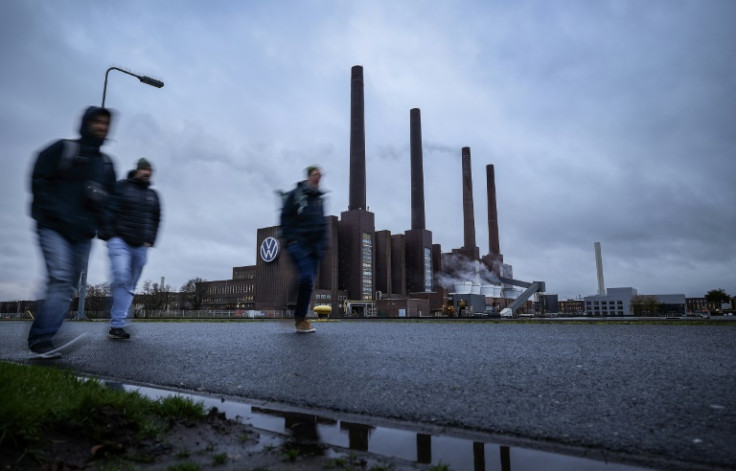
Thousands of Volkswagen workers walked out on Monday in the second round of strikes in the escalating conflict between unions and management over the German carmaker's drastic savings plans.
The four-hour work stoppage was called at nine Volkswagen factories across the country.
The action is twice the length of the first "warning strike" organised by union IG Metall last week, which saw some 100,000 workers down tools.
The walkout was timed to coincide with the latest round of negotiations between unions and management over VW's savings plan.
The two sides have been locked in bitter talks since Volkswagen said in September it was considering closing factories in Germany for the first time in its history.
The situation at the group's eponymous Volkswagen brand is "serious" according to executives, with drastic action needed to put the company on a sustainable footing.
The auto manufacturer has struggled with the switch to electric vehicles as it battles high costs at home and rising competition from Chinese carmakers.
According to unions, management has laid out plans to close at least three plants in Germany, where the Volkswagen brand employs some 120,000 people.
Worker representatives have vehemently opposed the plan to close sites in Germany and threatened the group with massive industrial action.
Unions presented a cost-cutting plan to management, which they said would save the car maker 1.5 billion euros ($1.6 billion).
But management has rejected the proposals, saying they did not add up to a "sustainable solution".
"We need to find further potential (for savings)... this is the only way we can finance our investments," Volkswagen negotiator Arne Meiswinkel said Monday.
Volkswagen's "insistence on maximalist positions" had "destroyed trust" among workers, IG Metall negotiator Thorsten Groeger said ahead of talks.
He added that if VW showed a willingness to compromise, it would be "possible that we can find solutions before Christmas" in just over two weeks.
Pushback against Volkswagen's plans has also come from Germany's political leadership.
"Closing factories would not be the right way," Chancellor Olaf Scholz told the Funke media group over the weekend.
"Precisely because the bad decisions of management have contributed to the situation, that would not be ok," said the Social Democrat, who is battling to save his job in elections slated for February.







